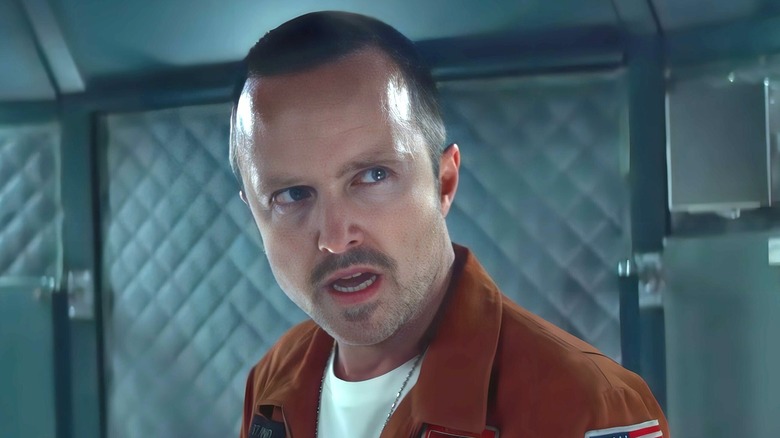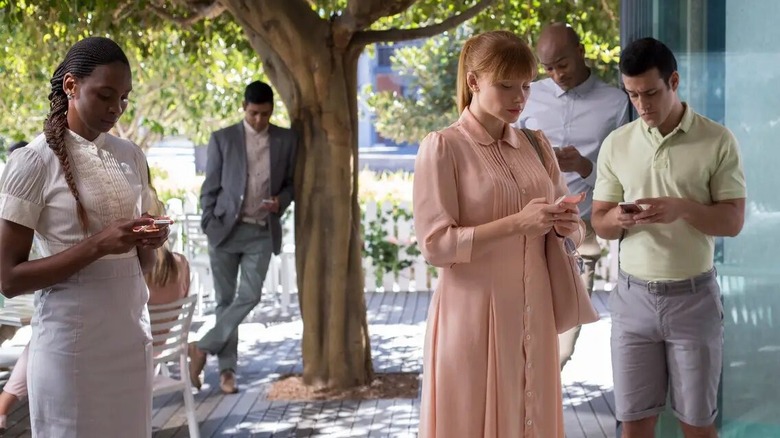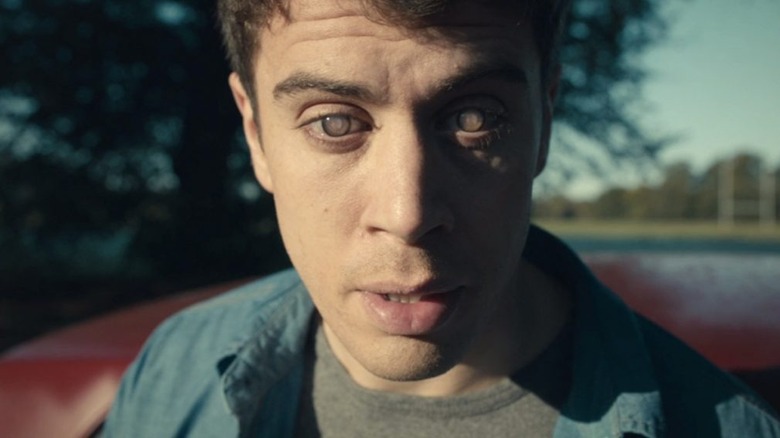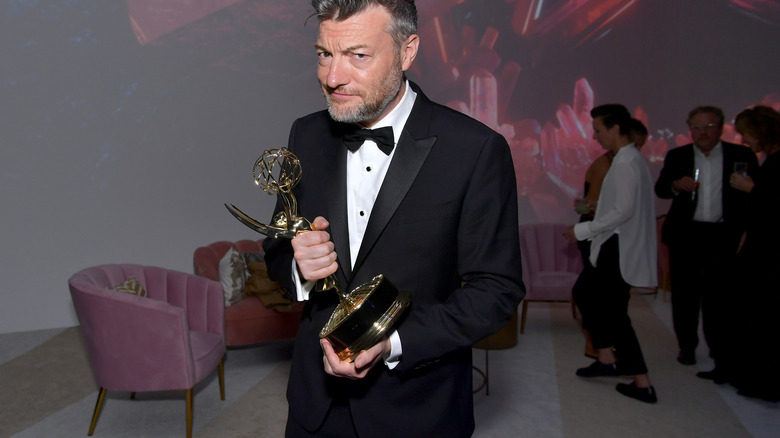Black Mirror Hits Harder In 2023, But Season 6 Can't Pull Its Punches (Or The Show Is History)
Get ready for a miserable summer. "Black Mirror" Season 6 is arriving on June 15, and it will be the first installment of Charlie Brooker's bleak anthology series to be released in the wake of the COVID-19 pandemic. Long-term fans are probably mouthwatering at the thought of new "Black Mirror" episodes and the social commentary they will provide in the current cultural climate, but Season 6 also promises to bring fresh ideas to the table.
"Black Mirror" loves to center its stories in dystopian futures, and these types of tales could be even more terrifying in 2023. The pandemic let us know what living in a dystopia actually feels like, and the event has only amplified some real-life dangers that could have permanent ramifications for humankind. Brooker's wacky anthology series is the perfect show to preach these warnings, and the pandemic certainly made some of the show's recurring themes about dystopias and technology feel all too real.
The "Black Mirror" Season 6 trailer has already given viewers a taste of things to come. Fans can expect horrifying episodes that explore everything from space travel to artificial intelligence to the streaming age. It looks like another "Black Mirror" series, but it also seems that this installment will be different from its predecessors. With that in mind, will the new season make the most of the opportunity to lean into some of its core ideas harder than before, or will it be a missed opportunity?
Black Mirror's dystopian digital commentary is more topical than ever
People were stuck inside for the better part of two years during the pandemic. With regular socializing and activities off the table, smartphones, streaming services, fancy gadgets, and social media platforms were some of the most prominent forms of entertainment. Society was arguably too online before COVID-19 reared its ugly ahead, but the global catastrophe only made it worse. Was the pandemic a catalyst for a future of digital dystopian nightmares?
"Black Mirror" has commented on people's digital dependency for years. While speaking to The Guardian, Charlie Brooker said that technology is comparable to narcotics, and too much of it is bound to have repercussions. "If technology is a drug – and it does feel like a drug – then what, precisely, are the side effects? This area — between delight and discomfort — is where Black Mirror is set," he said. That statement by Brooker is arguably truer in 2023 than it was when he originally made it over 10 years ago.
For those who experienced the pandemic, this notion probably makes sense. We have witnessed firsthand just how reliant people are on technology these days, but has it come at a cost? "Black Mirror" has warned us about the dangers of technology before, and it needs to do so again.
Black Mirror must not forget about the surveillance state
Cautionary tales about technological growth are the bread and butter of "Black Mirror." For example, Season 1's "The Entire History of You" episode features a storyline about a chip that enables people to record everything they do, see, and hear. It's a commentary on surveillance and the social repercussions of unchecked technological advancements, but it's only entertainment, right?
Wrong.
"The Entire History of You" is scary because its message isn't far-fetched at all. Maybe we aren't recording every moment of our lives yet, but the surveillance state is a real thing, and it's become evident in recent years. According to Science Direct, the pandemic was a period of technological growth that led to the creation of groovy things; however, that so-called progress could do some damage. From information and communication technologies to more sophisticated artificial intelligence, some of these creations were integral to daily life when everyone was stuck at home. On the flip side, there's a fear that people's willingness to support technological advancement could have long-term effects on society.
The downside of using technological applications is that they make us susceptible to data sharing. That information is then used by governments, corporations, and tech giants to keep tabs on us. This means that our privacy is probably being invaded as we speak, and personal freedom no longer exists. More people should know what they're signing up for, and "Black Mirror" Season 6 should hammer that message home. One episode, "Joan Is Awful," centers around a woman whose life becomes the subject of a streaming giant's new TV series, albeit without her approval. So, it appears that at least one of the new episodes will tap into the horrors of surveillance.
Charlie Brooker says Black Mirror Season 6 is a reboot
Netflix has released some information about Season 6's episodes, and the plot summaries suggest that they'll overlook some of the dystopian and technological themes that make "Black Mirror" great. Of course, most of the descriptions are ambiguous, but it's evident that Charlie Brooker and his team want to branch out and experiment with new concepts.
Per Insider, Brooker has described the new season as a reboot, so it might not be the "Black Mirror" of old. "I wanted to kind of reboot the show a little, and slightly move away from just focusing completely on technology by setting most of our stories in the past," he said. That's interesting, but this is the best time to focus on those types of stories, given that the digital world is currently at its most powerful and dystopian in real life.
No one can fault Brooker and his team for wanting to try new things. The beauty of "Black Mirror" is that every episode feels distinct, and the new ones will undoubtedly be entertaining. However, if Season 6 doesn't embrace some of its dystopian ideas in a post-pandemic world, the show risks becoming irrelevant.



